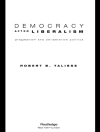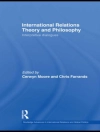‘Man being born…to perfect freedom…hath by nature a power…to preserve his property, that is, his life, liberty and estate.’Locke’s Second Treatise of Government (1689) is one of the great classics of political philosophy, widely regarded as the foundational text of modern liberalism. In it Locke insists on majority rule, and regards no government as legitimate unless it has the consent of the people. He sets aside people’s ethnicities, religions, and cultures and envisages political societies which command our assent because they meet our elemental needs simply as humans. His work helped to entrench ideas of a social contract, human rights, and protection of property as the guiding principles for just actions and just societies. Published in the same year, A Letter Concerning Toleration aimed to end Christianity’s wars of religion and called for the separation of church and state so that everyone could enjoy freedom of conscience. In this edition of these two major works, Mark Goldie considers the contested nature of Locke’s reputation, which is often appropriated by opposing political and religious ideologies. ABOUT THE SERIES: For over 100 years Oxford World’s Classics has made available the widest range of literature from around the globe. Each affordable volume reflects Oxford’s commitment to scholarship, providing the most accurate text plus a wealth of other valuable features, including expert introductions by leading authorities, helpful notes to clarify the text, up-to-date bibliographies for further study, and much more.
John Locke
Second Treatise of Government and A Letter Concerning Toleration [PDF ebook]
Second Treatise of Government and A Letter Concerning Toleration [PDF ebook]
Achetez cet ebook et obtenez-en 1 de plus GRATUITEMENT !
Langue Anglais ● Format PDF ● Pages 240 ● ISBN 9780191046278 ● Éditeur Mark Goldie ● Maison d’édition OUP Oxford ● Publié 2016 ● Téléchargeable 3 fois ● Devise EUR ● ID 5200568 ● Protection contre la copie Adobe DRM
Nécessite un lecteur de livre électronique compatible DRM












